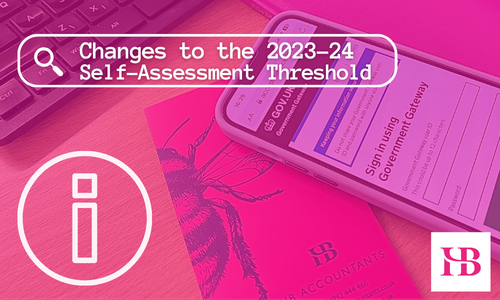Whether you’re just considering a new business idea or already transact as a sole trader, you may wonder if incorporating your business – that is becoming a Limited Company – is right for you. In order to know the answer, you need to research the differences between the two structures, and we highly recommend speaking to your accountant, as there will be tax implications.

How to choose the right legal structure for your new business
- If your profit figure is around £30,000 or more
- If you deal with the public or undertake large transactions so you have a higher business risk and/or
- If you have an income from another job
Then registering as a limited company might be more beneficial than becoming a sole trader. This is because incorporating a company is likely to be more tax efficient. Let’s look at what it means to become a Limited Company.
What does it mean to incorporate your business?
Incorporating your business creates a legal entity that exists independently of its owner(s), the shareholders. This means that the shareholders assets are protected – known as a Limited Liability – should the business fail or be sued.
An incorporated company can do business, agree contracts, own property, and more. But incorporating your business also brings with it legal obligations such as filing annual tax returns and accounts.
What’s the difference between a sole trader and a limited company
Let’s keep this simple. In short a:
Limited company – is when the business is a separate legal entity to the owner and any money the business makes belongs to the company.
Sole Trader – is when the owner and the business are legally the same with no legal distinction between the two.
This important legal difference leads to different reporting and tax requirements and it impacts how you pay yourself and claim expenses.
What does it mean in practice?
There are many advantages to incorporation for both the business and the owners. Forming a corporation allows you to:
- Secure your assets. *LLCs also provide limited liability protection; sole proprietorships and partnerships do not provide any liability protection
- Gain tax breaks
- More credibility with suppliers & potential clients
- Easy transfer and faster funds
- Retirement funds and qualified plans can be easier to establish
- Anonymity
Let’s look at these in relation to being a sole trader.
| SOLE TRADER | LIMITED COMPANY | |
| Ownership | No legal distinction between the owner/s and the business | The owner/s (shareholder/s) and business are separate legal entities |
| Legal and Financial Responsibilities | The owner is personally liable for what happens legally and financially Your personal assets could be at risk if the business runs into problems | The Directors and Shareholders have legal obligations but are considered to be separate entities. Personal assets are protected. |
| Salary Payments | Sole traders and their business are the same thing – owners keep all of the after-tax profits. | Any profits belong to the business. If these are withdrawn, as salary or dividends, then personal tax is payable. |
| Tax | Tax is paid on all profits, whether these are used personally or not. | It may be more tax efficient to be a Limited Company as profits remain in the business. Tax and National Insurance (NI) is payable only if they are withdrawn from the business. Note: employers pay NI as well as employees. If you cross the NI threshold, then both parties will have tax liabilities. |
| Reporting Obligations | Sole traders pay Income Tax and National Insurance on their profits by submitting a Self Assessment tax return to HMRC.There is no requirement to make your accounts public. | A Limited Company submits a Company Tax Return for the business and shares their accounts with Companies House. Any personal income taken from the company is submitted as a Self Assessment tax return to HMRC. |
Registering your new business
Whether you choose to operate as a sole trader or a Limited Company, you need to register your new business.
Sole traders register by signing up for Self Assessment with HMRC. The deadline for registration is 5th October in the business’ second tax year. It is free to register.
A limited company needs to register the business with Companies House, which will automatically enrol you for Corporation Tax with HMRC. There’s a useful step-by-step guide on gov.uk to help. You also need to appoint directors and shareholders and prepare documents setting out how the company will be run. There is a fee for registering.
Need more information?
We have prepared some basic FAQs about being a Limited Company, which will give you more insight but please feel free to call the HB team at any time. Not only can we help with your questions about business structures, we can offer you support with your tax, payroll, management accounting and so much more. You can contact us on 01992 444466. We’re accountants for business and for people. We’re here to help.
The information contained above is for general guidance purposes only. Whilst every effort has been made to ensure the contents are accurate, please note that each individual has different circumstances and it is essential that you seek appropriate professional advice before you act on any of the information contained herein. HB Accountants can accept no liability for any errors
Read Our Latest Blogs Below
- Why a budget helps you to focus on business growth
- How a SME Owner Can Create More Time
- A New Academic Year for our Student in Zambia
- Benefits in Kind via the payroll
- Getting a mortgage when you’re self employed







